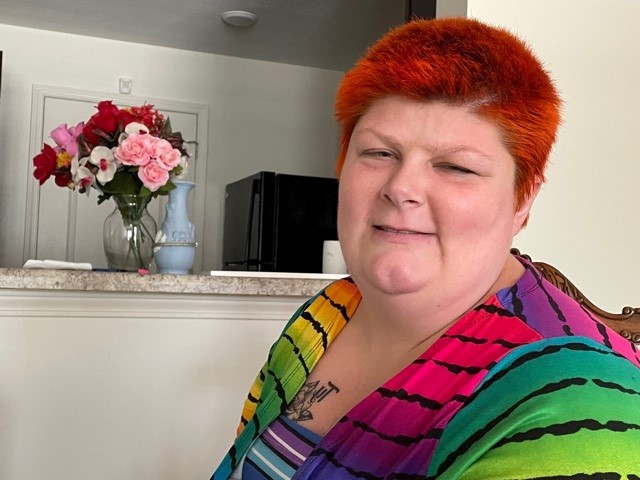Nina Williams still cries sometimes when she thinks about all she’s been through. But now, after years of trauma and struggle, Williams sheds mostly happy tears.
“I am a very successful person,” she said, smiling. “And I am glad that I got help. I actually fear that if I didn’t, I might be dead.”
Williams said she’s thriving in large part due to the intensive case management and behavior-support services she received through the Franklin County Board of Developmental Disabilities and the Ohio State University Nisonger Center. The agency and center have partnered for the past 20 years to better serve central Ohio, and in 2019 launched a “Co-Service Coordination” effort to help people such as Williams who have both developmental disabilities and complex behavioral challenges.
Many of those referred to the co-service program exhibit behaviors that could endanger themselves or others, or put them at risk of legal sanction or incarceration. Oftentimes, they can’t hold onto relationships with family and friends, and aren’t able to attend day programs or maintain community employment.
“A lot of our clients have been through a lot of trauma – they’ve had many different living situations,” said Kelly Barnett, clinical program manager for Nisonger Behavior Support Services. “What our assessment is trying to do is figure out what needs aren’t being met.”
Working together, Nisonger behavior support specialists and FCBDD service coordinators can develop personalized plans that guide people to the services, support and care they need to attain safety, stability and a much-improved quality of life.
“Our teams meet really regularly,” Barnett said. “The plans have to be good, and they have to be easily understood. We want providers and others to be able to pick it up and understand how to help that person have their best day.”
Williams, for example, needed more than a service plan that addressed her disabilities. She also had endured years of abuse, neglect, poverty and addiction. Williams drank, took drugs and lashed out. “I knew what I what I was doing was wrong, but sometimes you’ll do anything to make the pain go away,” she said.
Now, at age 30, she has her own apartment, a community job and the supportive services she needs. “I am proud of Nina,” said FCBDD service coordinator Fatoumata Sow. “I’m proud of the way she handles things, the way she’s willing to cooperate. She’s doing great.”
Williams is on a steady path and has “graduated” from the co-service effort. She said she has a boyfriend who treats her well, and she’s saving for a trip to visit her sister in Colorado. She likes to dress in bright colors to reflect her newfound happiness.
“I would suggest to anyone that they get an advocate,” she said. “There’s lots of help available. It’s nice to be a success story.”


